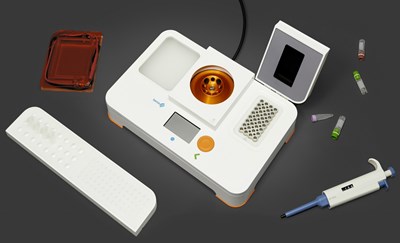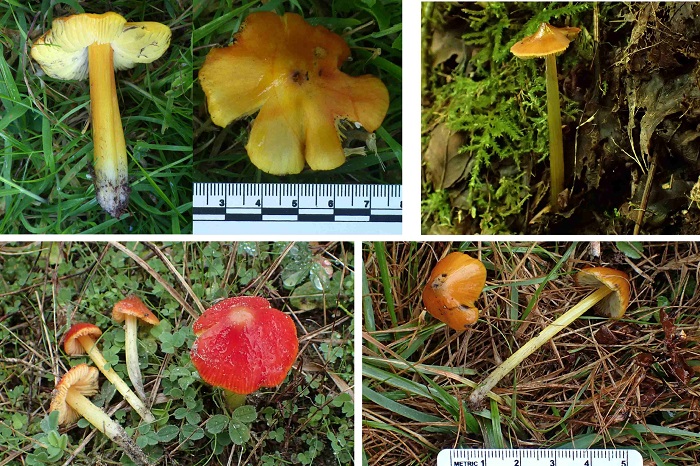Solving the Mysteries of Mushroom DNA

The Bento Lab prototype which is being used to extract mushroom DNA
01 September 2016
Researchers at Aberystwyth University have been teaming up with Pembrokeshire citizen scientists in a quest to solve DNA mysteries in mushrooms.
DNA barcoding is no longer confined to specialist laboratories as Dr Gareth Griffith, Caio Leal-Dutra and Lisa Classan from the Institute of Biological, Environmental and Rural Sciences (IBERS) at Aberystwyth University bring it in to the home.
Retired science enthusiasts are helping to contribute to IBERS Microbiology Groups research in fungal ecology through the Bento Lab programme.
Bento Labs, named after the Japanese for lunch box, are a portable box no bigger than a laptop or biscuit tin that provides everything needed to extract DNA from mushroom samples and generate a genetic barcode.
In the world of mushrooms there has been controversy for 50 years among fungal biologists, unable to agree as to whether there is one or many species of the Blackening Waxcap - a mushroom found all over Wales and the UK.
There are many variables in both colour and shape but initial studies have failed to resolve the issue. Dr Griffith and his team are adamant they wish to settle it once and for all.

This is where the citizen scientists get involved, specifically David Harries and colleagues in the aptly named Pembrokeshire Fungus Recording Network.
Dr Griffith knew the members individually before the group was formed all of whom are from scientific backgrounds and the team have since proved themselves an invaluable asset to the research project.
With their detailed local knowledge of Pembrokeshire, they have been recording where they find the mushrooms; collecting samples and photographs with details of the habitat to add to the database started by Dr Griffith.
The Pembrokeshire Fungus Recording Network have also been working directly with the creators of the Bento Labs, reporting back any issues they find with the prototype Bento Boxes and sending information to help improve the system.
It’s early days yet but their first attempt with twelve samples was a resounding success, returning the results that Dr Griffith’s had hoped for.
Dr Griffith said of the work with his civilian team: “It has been a privilege to find a group so enthused by the project and with their help and knowledge of the Pembrokeshire countryside we have made real progress.
“When I approached them about getting involved they were keen to do more than just collect the samples so with the use of the prototype Bento Labs they are able to do the DNA analysis from their own homes. I foresee a long future ahead of us as a team and would like to continue working with them on upcoming projects.”



